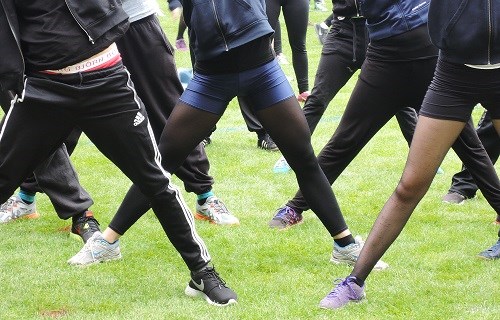UNESCO lies out roadmap for global polices on sport and physical activity
All members of society must enjoy equal access to physical education, physical activity and sport. Gender equality is required as well as public investments in facilities and spaces that invite to physical movement. Mega sporting events should be held in a responsible and sustainable way by sports organisations that comply with principles of good governance in a doping-free environment without the fear of match-fixing and other forms of foul play.
There is no lack of visions for sport in the revised International Charter for Physical Education, Physical Activity and Sport that was adopted by close to 200 member states during the 38th session of the UNESCO General Conference in Paris, France, 3-18 November 2015.
With its 12 articles, the charter can be used as a roadmap for governments when enhancing physical activity in their respective nations. Also stakeholders of all kinds inside and around sport can use the charter as leverage when trying for instance to improve governance in sport and ensuring sport’s integrity and sustainability.
“The adoption of the revised Charter should mark a shift away from words towards action, from policy intent to implementation. It sets the tone for a new international sport policy debate, which should now focus on the exchange of good practice, education and training programmes, capacity development, and advocacy. This is also a strong recognition of physical education as a driver for promoting gender equality, social inclusion, non-discrimination and sustained dialogue in our societies,” said UNESCO Director-General, Irina Bokova in a UNESCO press release.
The revised Charter has been in the making since the 5th World Conference of Sport Ministers (MINEPS V) in Berlin in May 2013 when 600 participants from 121 countries adopted the Declaration of Berlin. The new charter also builds upon the outdated original Charter first adopted in 1979.
The revision of the charter has involved stakeholders from sports organisations, practitioners, academia and NGO’s, including Play the Game.
“Now there is little excuse for governments who believe that shaping an all-encompassing strategy for sport is none of their business, and that sports organisations should be left working in peace, independent of the outcome, quality and efficiency of their efforts,” says Play the Game’s International Director Jens Sejer Andersen about the potential value of the revised charter.
“The success of the charter, however, depends on our readyness to act: Use it - or lose it.”
The revised charter and how to turn the intentions behind into actions were also at the heart of discussions at the closing session of Play the Game 2015, taking place in Aarhus, Denmark in October. Watch the closing session here and find speaker presentations and other material from Play the Game 2015 on the conference website.
More information
- Read the UNESCO press release
- Read more about the content of the revised charter
- Play the Game 2015 presentations and videos






